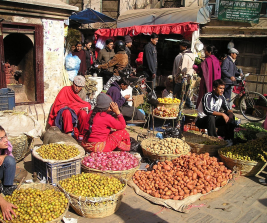Carolyn Barsulai
Carolyn supported the A2ii's ongoing implementation and capacity building activities, and was A2ii's Dialogues (consultation calls) lead. Prior to joining the A2ii Carolyn did an internship with the UNFCCC secretariat in Bonn. The work variously involved supporting least developing countries in the development of their national adaptation plans and policies and building resilience for adaptation to climate change. Carolyn holds a Master's degree in Governance and Public Policy from the University of Passau.
In the face of adverse risks, insurance is a tool that can build resilience, especially for the most vulnerable who are often excluded and lack effective risk management strategies when disaster hits. I believe that it is vital to address barriers to access and I would like to play a role in fostering greater inclusivity for those most in need.
Blog Posts from Carolyn Barsulai






